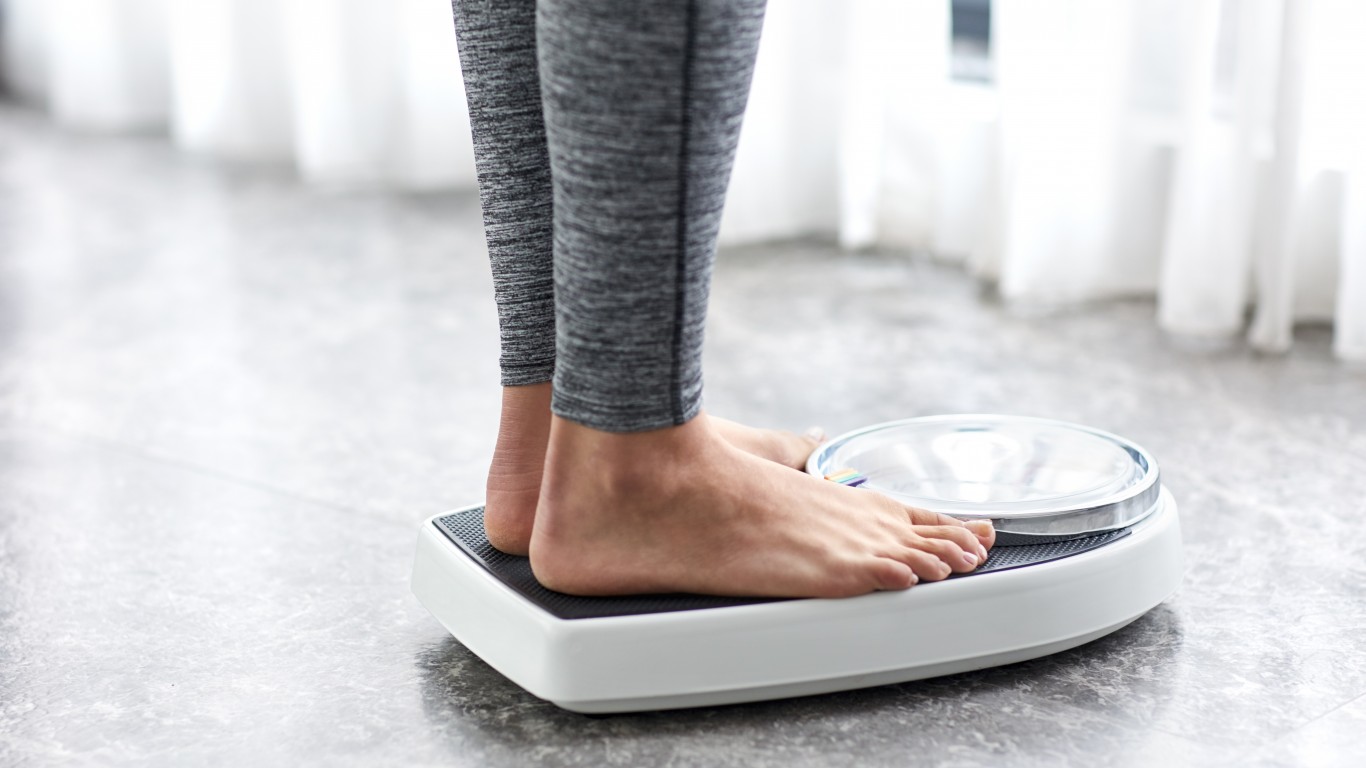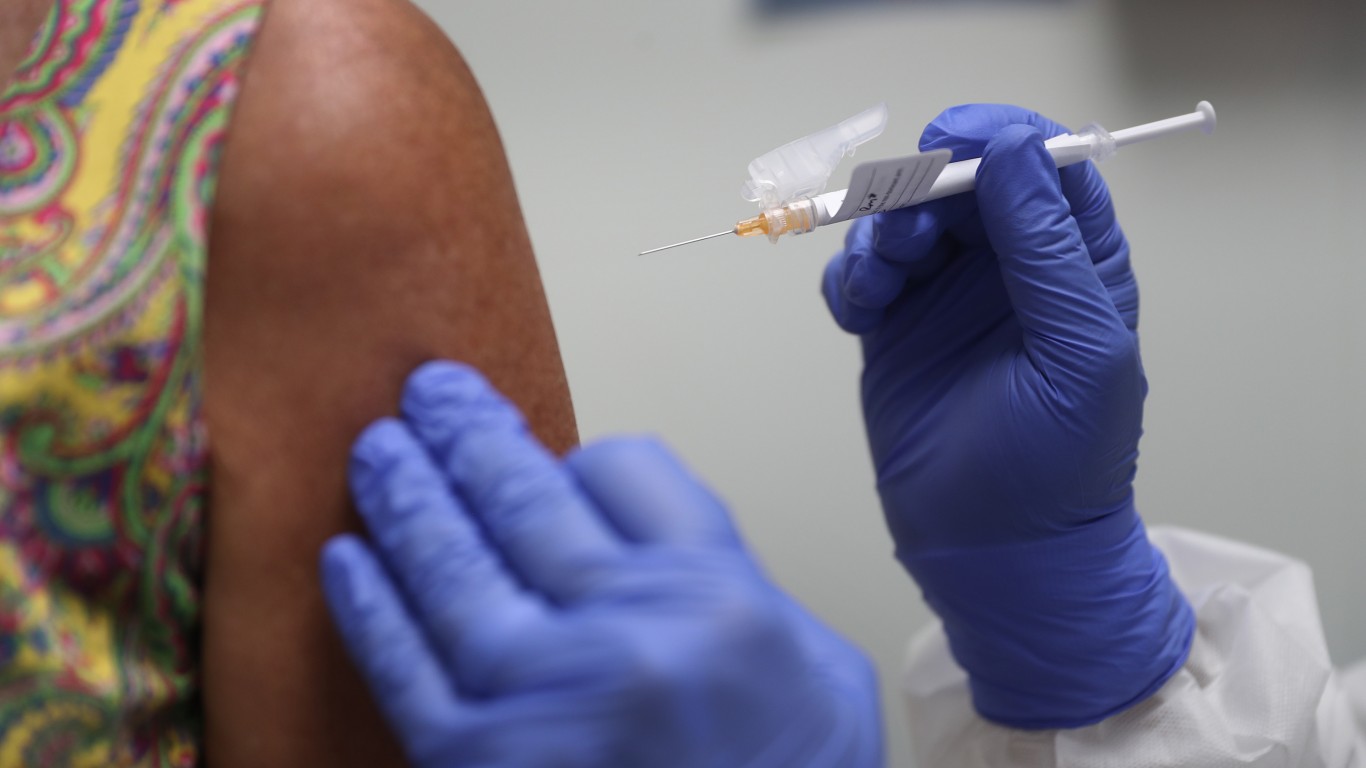
Capitalizing on the popularity of weight-loss drugs like Wegovy and Zepbound, Hims & Hers Health (NYSE:HIMS) has exploited a loophole in Food & Drug Administration regulations to bring to market similar drugs without having to undergo the rigors of clinical testing the pharmaceutical giants are required to pursue.
The effect has been to quickly ramp up sales and gain a toehold in an incredibly lucrative market. Yet after tripling in value over the past year and a half, HIMS stock is falling hard. Shares are down 43% from their peak and the decline may not be over.
The primary cause for the selloff could be because Eli Lilly (NYSE:LLY) has cut the knees out from under Hims & Hers biggest selling point: selling weight-loss drugs at a steep discount.
Key Points About This Article:
- Hims & Hers Health enjoyed a major run-up in its stock on the strength of selling a knockoff version of anti-obesity drugs at significant discounts.
- HIMS stock has stalled and fallen as rival Eli Lilly plans to offer its FDA-approved version at a large discount. There is also reporting Hims & Hers is using a supplier with a sketchy past.
- If you’re looking for some stocks with huge potential, make sure to grab a free copy of our brand-new “The Next NVIDIA” report. It features a software stock we’re confident has 10X potential.
The Skinny On the Hottest Weight-Loss Trend

Next to artificial intelligence, weight-loss drugs have been one of the hottest market trends for the past two years. The immense popularity of of Novo Nordisk‘s (NYSE:NVO) Wegovy and Ozempic injections sparked a mad rush of interest in glucagon‑like peptide‑1 (GLP-1) drugs, a treatment for diabetes that was found to have a tremendous impact on obesity.
Semaglutide, the active ingredient in Wegovy and Ozempic, increases insulin in the body and helps control blood sugar. Novo Nordisk generated $14 billion in sales in 2023 for Ozempic and an additional $4.5 billion from Wegovy. Sales are up to $8.4 billion and $3.1 billion, respectively, over the first six months of 2024.
Following the success of the Danish drugmaker’s therapies, Eli Lilly introduced its own GLP-1 drugs, Mounjaro and Zepbound. Its active ingredient is tirzepitide. Although largely a year behind Novo Nordisk, the U.S. pharma achieved sales of $5.2 billion for Mounjaro last year, and $176 million for Zepbound, but it was only released last November.
So far this year, however, sales are up to $4.9 billion and $1.8 billion, respectively. Analysts now expect Lilly to eventually become the dominant player in the market. They forecast $30 billion in sales for the twin treatments in 2026, only slightly behind the $40 billion in sales for Novo Nordisk.
An End-Run Around Regulatory Oversight

Obviously, those kinds of numbers leave the $100 million in sales Hims & Hers Health forecasts it will generate from its knockoff GLP-1 treatments pale in comparison. Yet as a tiny company compared to the global pharmaceutical stocks, it is a major accomplishment that could see sales grow.
Hims was able to do this by doing an end-run around FDA regulations that allows so-called compounding pharmacies to sell their own versions of drugs if there are shortages. The outsized demand for both Wegovy and Zepbound have maxed out the capacity of the pharmas to produce them.
Selling treatments that typically go for $1,000 per month for only $199, Hims & Hers could steal a lot of business from the industry leaders. But that kind of traction might just abruptly end. Eli Lilly is about to sell Zepbound for $399 per month direct to consumers.
Typically sold in more expensive injector pens, Lilly is offering the drug in vials to get Zepbound to customers more quickly and at lower cost. This could halt Hims & Hers growth in its tracks.
No Need for Taking Undue Risks

What Hims & Hers sells to consumers is not the same drug that Novo Nordisk or Eli Lilly sell. According to the FDA, the compounded semaglutide on the market is often made with salts, typically semaglutide sodium and semaglutide acetate. The agency notes these are different active ingredients from the approved drugs and many people have reported adverse reactions from taking them. By selling the real thing to consumers directly, Eli Lilly negates the need to resort to untested, unapproved treatments.
Moreover, new media outlet HunterBrook called into question the supplier Hims & Hers uses. The site, which often partners with its investment arm HunterBrook Capital to take advantage of its reporting (i.e., shorting stocks it reports negatively on), says Hims & Hers sole supplier has “previously unreported ties to fraud and bankruptcy.”
In short, Eli Lilly may have destroyed the upside potential for Hims & Hers stock by undercutting the rationale for using knockoff formulations. Coupled with reports that suggest the healthcare company’s supplier has an unsavory past, the substantial declines seen in HIMS stock may only be just the beginning.
In 20 Years, I Haven’t Seen A Cash Back Card This Good
After two decades of reviewing financial products I haven’t seen anything like this. Credit card companies are at war, handing out free rewards and benefits to win the best customers.
A good cash back card can be worth thousands of dollars a year in free money, not to mention other perks like travel, insurance, and access to fancy lounges.
Our top pick today pays up to 5% cash back, a $200 bonus on top, and $0 annual fee. Click here to apply before they stop offering rewards this generous.
Flywheel Publishing has partnered with CardRatings for our coverage of credit card products. Flywheel Publishing and CardRatings may receive a commission from card issuers.
Thank you for reading! Have some feedback for us?
Contact the 24/7 Wall St. editorial team.





